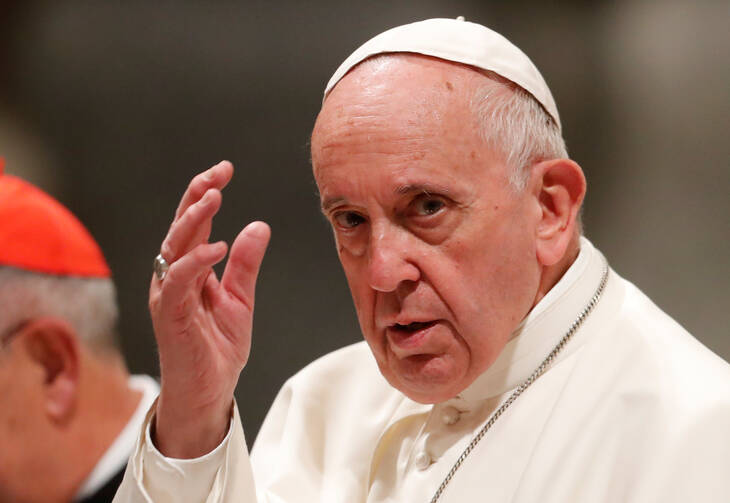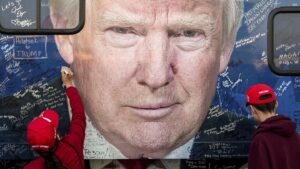
Pope Francis gestures as he addresses over 1,000 diocesan leaders, both clergy and laity, May 9, 2019, at the Basilica of St. John Lateran, the cathedral of the Diocese of Rome. (CNS photo/Remo Casilli, Reuters) See POPE-ROME-DIOCESE May 10, 2019.
ROME — The ongoing debate within the Catholic Church regarding the celebration of the traditional Latin Mass has intensified following the apparent leak of Vatican documents. These documents challenge the rationale provided by Pope Francis for restricting access to the ancient liturgy, just as Pope Leo XIV begins his pontificate.
The leaked documents suggest that a majority of Catholic bishops who participated in a 2020 Vatican survey expressed satisfaction with the Latin Mass and warned that restricting it would “do more harm than good.” The texts, originating from the Vatican’s doctrine office, were published online by Vatican reporter Diane Montagna on Tuesday. As of Wednesday, the Vatican spokesman and the prefect of the doctrine office have not confirmed the authenticity of the documents or provided any comments.
If verified, these documents could increase pressure on Pope Leo XIV to address the liturgical divisions that became prominent during Pope Francis’ 12-year papacy, particularly in the United States. Pope Leo has emphasized unity and reconciliation as central themes of his leadership, and many conservatives and traditionalists view the Latin Mass issue as a critical area requiring resolution.
The Historical Context of the Latin Mass
The Latin Mass, also known as the Tridentine Mass, was the standard liturgy before the reforms of the Second Vatican Council in the 1960s, which allowed Mass to be celebrated in local languages with the priest facing the congregation. In 2007, Pope Benedict XVI relaxed restrictions on the Latin Mass, a decision that Pope Francis later reversed in 2021, citing concerns about division within the Church.
Francis argued that the relaxation of restrictions had been “exploited to widen the gaps, reinforce the divergences, and encourage disagreements that injure the church.” He claimed his decision was based on the “wishes expressed” by bishops worldwide and the Vatican doctrine office’s opinion.
The Leaked Documents and Their Implications
The newly leaked documents, however, present a contrasting narrative. They suggest that the majority of bishops who responded to the Vatican survey held a favorable view of Benedict’s reform and cautioned that suppressing the Latin Mass could drive traditionalist Catholics to schismatic groups.
“The majority view of the bishops, that restricting the TLM would cause more harm than good, has sadly been proved correct,” said Joseph Shaw of the Latin Mass Society of England and Wales.
The documents include a five-page “overall assessment” of the survey findings and a seven-page compilation of quotes from individual bishops or bishops’ conferences. While some negative and neutral opinions were noted, the Vatican’s assessment indicated general satisfaction among bishops, highlighting a rise in religious vocations in traditionalist communities and the appeal of the Latin Mass’s “sacredness, seriousness, and solemnity” to young Catholics.
Reactions and Future Considerations
The leak has provided comfort to traditionalists who felt marginalized by Pope Francis’ policies. Joseph Shaw emphasized the need for Pope Leo XIV to address the issue urgently, suggesting that the new revelations confirm that the restrictions were enacted at the request of only a minority of bishops.
As Pope Leo XIV navigates these complex liturgical waters, the broader implications for the Church’s unity and its approach to tradition versus modernity remain to be seen. The new pontiff’s response to these revelations could set the tone for his leadership and the Church’s future direction.
Meanwhile, the global Catholic community watches closely, anticipating how Pope Leo XIV will reconcile these divisions and whether he will take steps to amend or uphold the restrictions imposed by his predecessor.





